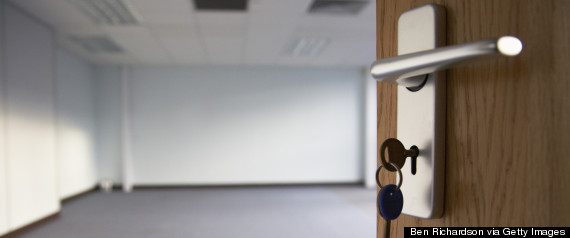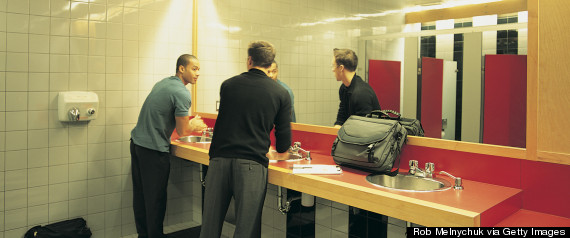
There are a lot of reasons why the majority of American workers end up going to work sick. This flu season, make sure pressure from your boss isn’t one of them.
Bringing a cold or flu to work can wreak havoc on your office. But for a variety of reasons, up to 90 percent of workers don’t stay home when they come down with a bug. A 2014 survey found that some say their jobs are too important. Others simply don't get paid sick time and can't afford to miss a paycheck, while still others say staying home would look bad to their boss.
In reality, there are numerous reasons why going to work while you're sick doesn’t do any good for you or the company you work for. Your boss should know this by now, but if he or she doesn’t, here are eight reasons why you should just stay home sick. Feel free to borrow them the next time you're under the weather.
Sickness in the office spreads fast. Really fast.
Just by contaminating one door, a virus can spread to around half the surfaces in a medium-sized office within four hours, a recent study by the University of Arizona found. That same virus was also found on the hands of around half of the company's 80 employees in the same timeframe.
The study also found that a virus can spread like this when just one person who is infected comes to the office. That means that you could potentially infect half your colleagues by lunchtime just by showing up to work.
 Just imagine what happens if more than one door gets contaminated.
Just imagine what happens if more than one door gets contaminated.
And germs stick around, too.
Flu viruses can linger on hard surfaces like desks, conference tables and keyboards for up to 48 hours. That means that even if that sick co-worker was sent home after lunch, you have the potential to get infected for a full two days afterward.
But the most likely way to get sick is through direct contact with an employee, which is pretty disconcerting when you realize that…
Your co-workers probably aren’t doing much to prevent the spread of illness.
Half of employees don’t wash their hands once they get to the office, a recent study found. Co-workers could also do better to slow the spread of disease by sneezing into their arm instead of their hands and by touching fists rather than shaking hands. Your boss should have noticed by now that neither behavior is exactly commonplace.
 Better hope your co-workers are as clean as these guys, because they probably aren't.
Better hope your co-workers are as clean as these guys, because they probably aren't.
Your desk only exposes you to more germs, and that could get you even more sick.
A 2002 study found that the common workplace desk has hundreds of times more germs than an office toilet seat. Kind of changes your whole perspective on eating at your desk, doesn't it?
Sick people are less productive at work anyway.
Several studies have shown sick people perform worse at work. A 2012 study by Staples found workers were 60 percent less productive when working from the office while sick. A follow up of the same study last year found a third of those who admitted to going to work while sick said they were about half as productive when they did.
 You're not fooling anyone with that giant cup of coffee.
You're not fooling anyone with that giant cup of coffee.
Sick people coming to work just makes more people sick.
In short, when sick people come to the office, other people get sick. People with the flu who don’t stay home cause their co-workers to take 20 to 30 percent more sick days, according to California-based Disability Management Employer Coalition.
Working while sick extends the time it takes to get better.
You probably don’t need a doctor to tell you that pushing it when you’re sick only makes you sicker and extends the amount of time you need to recover. Ask your doctor if you're not sure, or read this article written by one. That means that the only thing you really stand to gain by coming to work sick is the increased risk of having to miss more work later.
And that all ends up being really expensive for the company.
Sixty percent of corporate health costs are caused by sick people coming to work, according to one study by Cornell University. To put that in real terms, research by the Integrated Benefits Institute found that sickness cost U.S. businesses about $227 billion from “lost productivity” each year, much of that due to employees coming to work sick.
If nothing else, that should get your boss listening.
